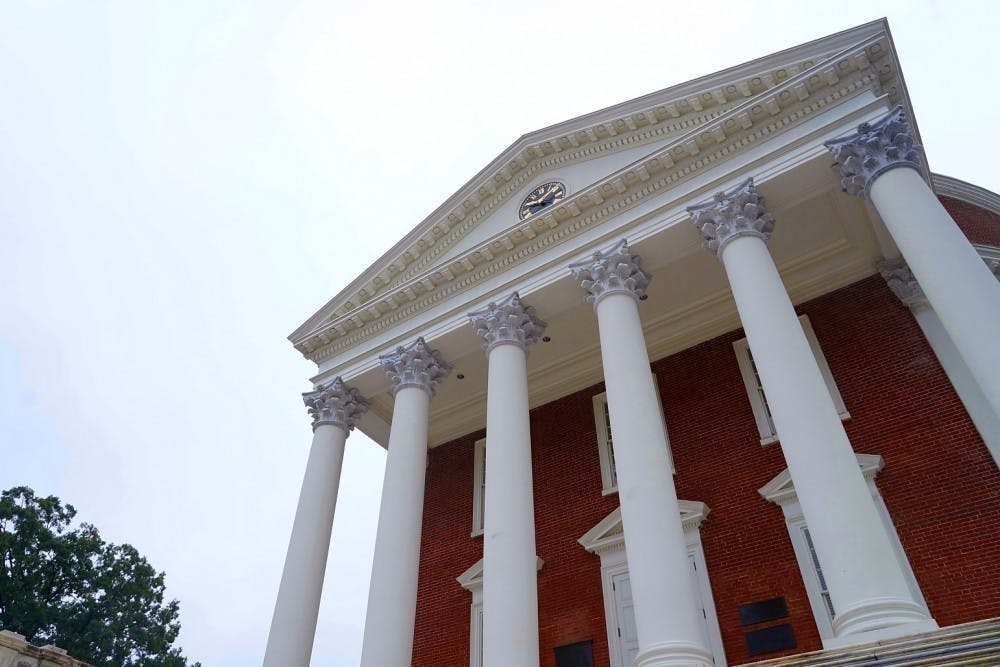The selection of a graduation speaker is a strong indicator of the University’s values. This year the University has chosen one of its own vice provosts, Louis P. Nelson, as a Finals Weekend speaker. Despite Nelson’s contributions to the University as Professor of Architectural History and the Vice Provost for Academic Outreach, his appointment as graduation speaker is a mistake. Nelson has actively contributed to stifling progress for the Indigenous communities of Charlottesville and the University. Having him speak at final commemorations would be a step in the wrong direction regarding accountability. It is time that the University recognizes further efforts for equitable participation by Indigenous communities, and it starts with repealing Nelson’s appointment as graduation speaker.
The Mellon Foundation created the “Race, Place, and Equity” grant in Dec. 2020, which invested $5 million to the University to develop “research, teaching, curriculum, and community partnerships around the intersections of race, place and equity.” For the next five years, the grant will support courses, faculty and community relationships to further address racial inequity. In the University’s announcement of his selection as Finals speaker, Nelson was cited as lead author of the proposal for the grant. This project emphasized “Indigenous and Black Histories.” The grant proposal included activities with our Indigenous Studies advocacy group as well as the Monacan Indian Nation. However, neither the Monacan Nation or the Native American Indigenous Studies Initiative were notified by Mr. Nelson about the grant’s development or award. During the two years prior to the grant award, Mr. Nelson was involved in regular meetings with our group to develop Indigenous studies initiatives, but Mr. Nelson chose not to inform us about the Mellon grant the University received — which is especially concerning considering the grant exists to help the humanities build just communities by appropriately recognizing our complex histories.
Despite both organizations’ exclusion from information regarding the grant, Mr. Nelson used NAIS’s name and the Monacan Nation’s name in the grant proposal, ostensibly to present a more diverse and therefore more competitive grant proposal to the Mellon Foundation. Mr. Nelson admitted that he inappropriately used the NAIS and Monacan names in the submission of the grant to Mellon after being questioned by NAIS. He also admitted that he had reached out to a member of the Monacan Nation and NAIS regarding supporting Monacan educational needs. It was later determined that he had offered them $50,000 for a video production project. In addition to the grant development improprieties, the $50,000 offered to the Monacan Nation represented only one percent of the grant award — not enough to address the Indigenous Histories part of the grant.
The exclusion of NAIS from the Mellon grant process by Mr. Nelson has long-term negative consequences for our prospects at the University to establish the academic programs and research needed to address Thomas Jefferson’s egregious legacy towards Native Americans. In 1818, at one of the founding meetings of the University, Mr. Jefferson articulated his view of Indigenous knowledge. Given the lack of Indigenous program development at the University for the next 200 years, that statement became the University’s de facto American Indian policy — that the lack of education and an inherent backwardness is what keeps Indigenous people from indulging in “civilization” rather than the years of colonization and genocide at the hands of people like that of Thomas Jefferson.
It is true that the Mellon Foundation is addressing long standing historical injustices at other universities through the same grant that the University received. Unless the Mellon Foundation provides another multimillion-dollar grant to the University to address the atrocities committed against Indigenous peoples, however, the Charlottesville Native American community may have lost a major funding opportunity to achieve real progress due to Mr. Nelson’s actions which excluded Native American participation in the development of the grant.
While Mr. Nelson’s office has made significant contributions, Mr. Nelson’s duplicitous approach with NAIS has adversely affected our equitable participation in the life of the University. The consequences of Mr. Nelson’s actions means that the egregious Indigenous legacy of Thomas Jefferson will be sheltered from public view. Thomas Jefferson erred when he and other University founders excluded Indigenous knowledge from the mission of the University in 1818. Mr. Nelson’s actions have extended that exclusion by prohibiting Indigenous voices from a grant created to incorporate those very voices.
Nelson should not be honored with speaking at Finals week after contributing to such a lengthy and harmful legacy of exclusion. The question that remains to be addressed is how Vice Provost Louis P. Nelson might have acted otherwise as an Associate Provost to address the questions — What is Thomas Jefferson’s Indigenous legacy? What is needed now at the University to equitably address that legacy?
Anthony Lopez is the co-founder of Native American and Indigenous Studies Center Initiative at UVA and a member of the Crow Creek Sioux tribe.







